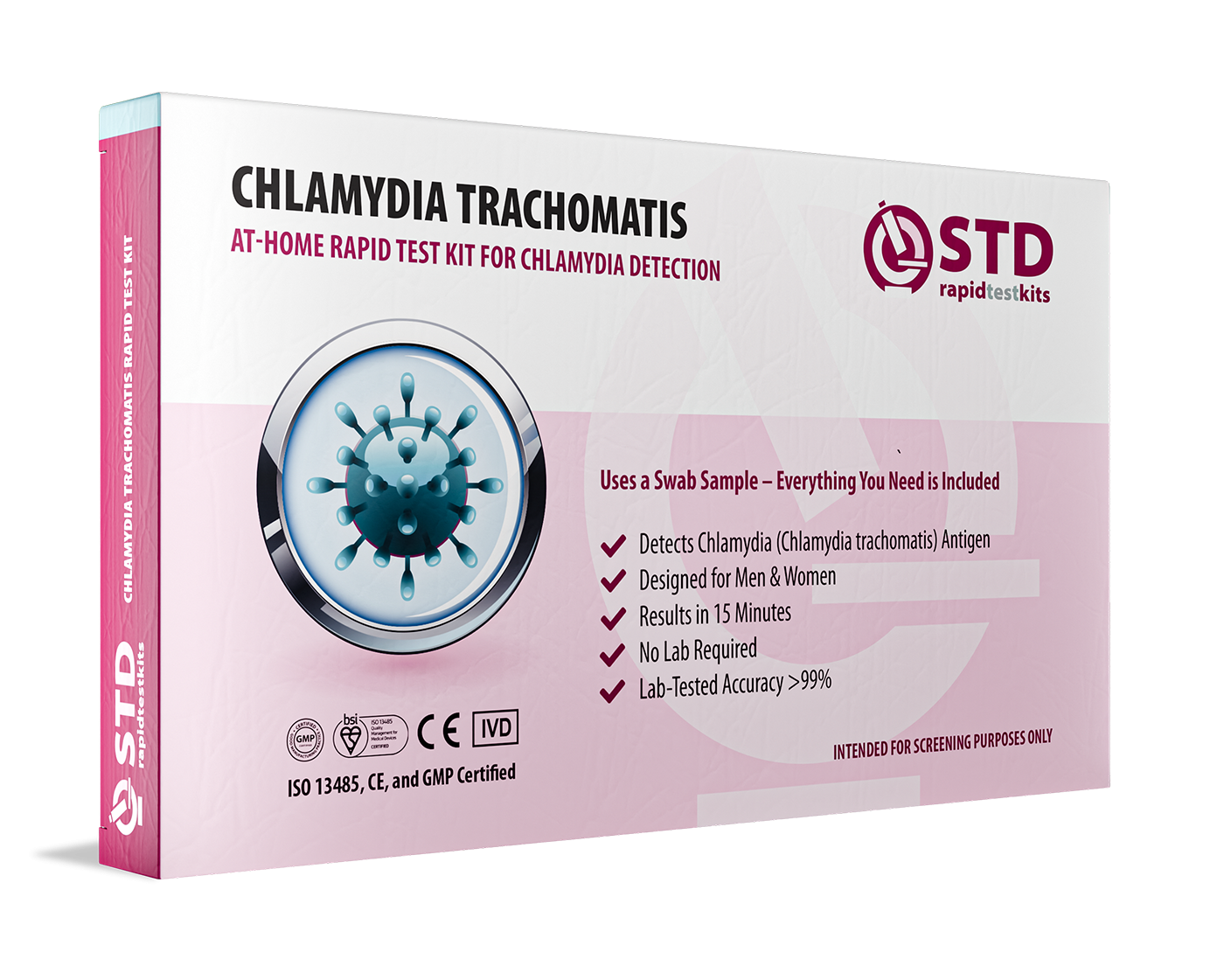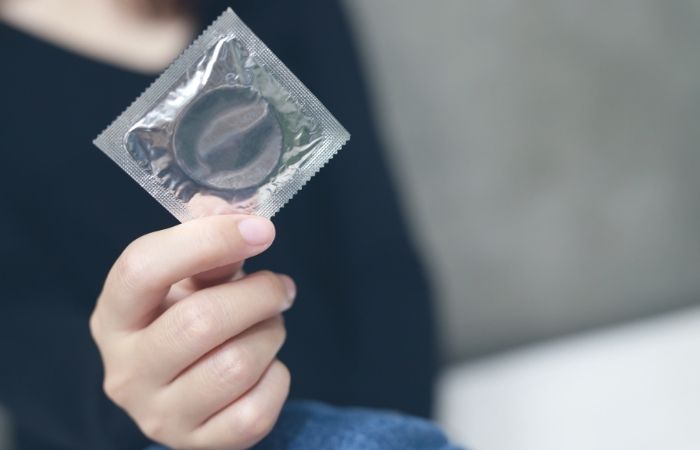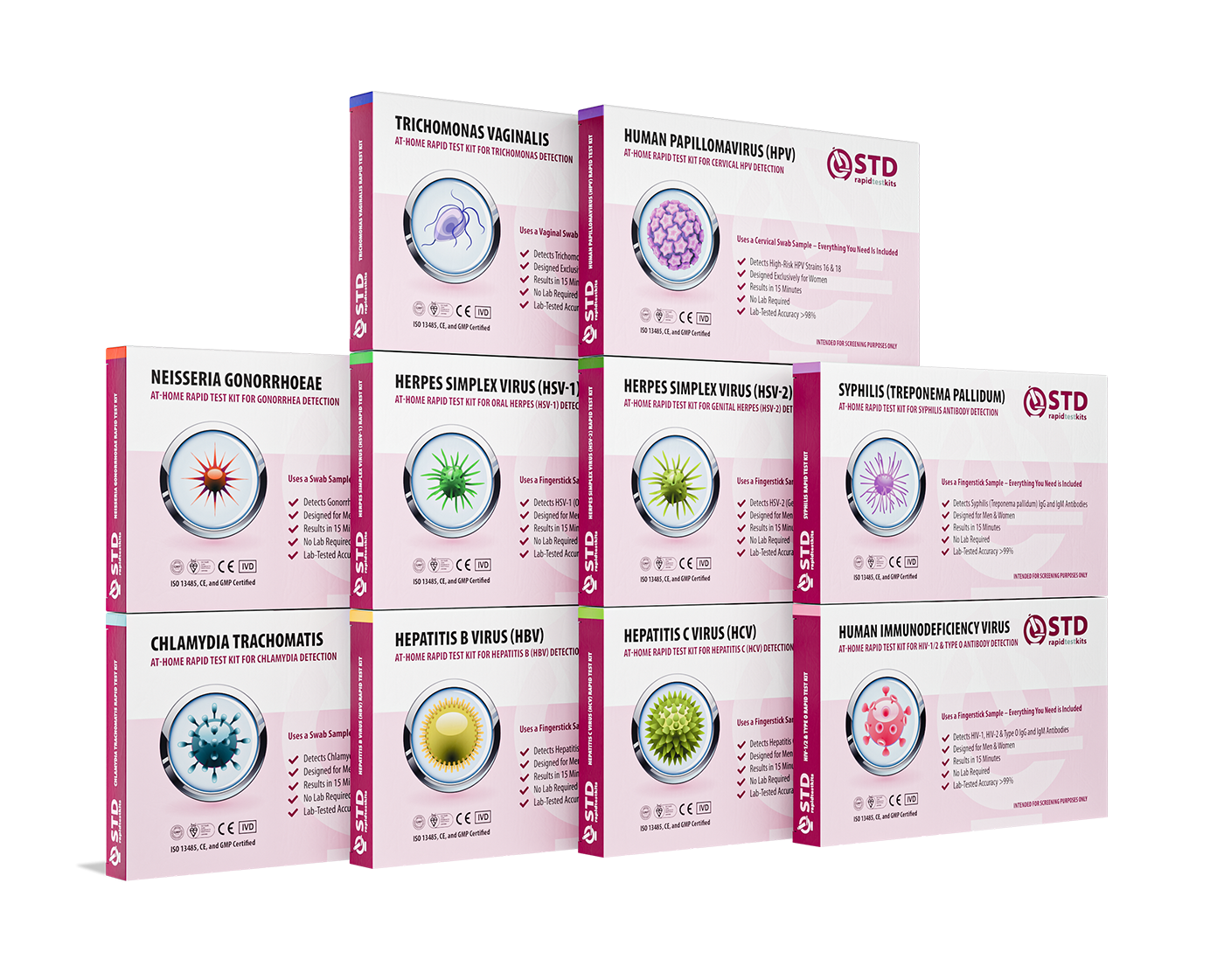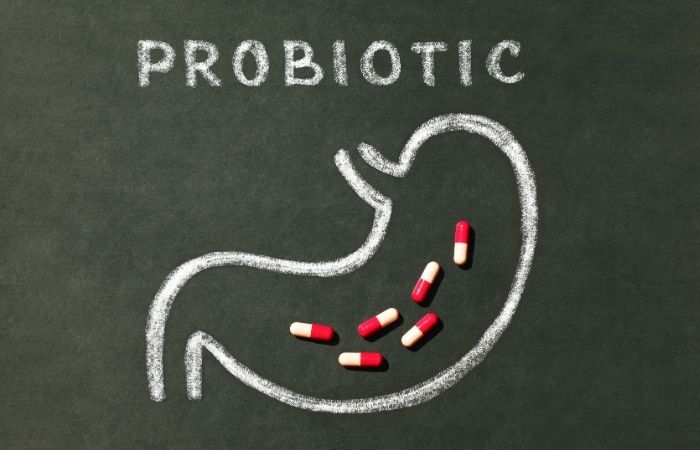Quick Answer: Probiotics help support vaginal health and may reduce infections like BV or yeast, but they do not prevent STDs. Condoms and testing are still your best protection.
“I Was Doing Everything Right, Why Did I Still Get an STD?”
It’s a question we’ve heard dozens of times: You eat clean, hydrate, take probiotics, use clean sex toys, avoid douching, and somehow still end up with Chlamydia, Gonorrhea, or Trichomoniasis. How?
Maya, 22, thought she had a yeast infection after sex with her ex. She took an over-the-counter probiotic labeled “vaginal health,” drank cranberry juice, and waited. When the itching got worse and she developed a yellowish discharge, she finally tested. It wasn’t a yeast infection. It was gonorrhea.
“I felt betrayed by my own body. I kept thinking, wasn’t I doing all the ‘right’ things?”
The truth? While probiotics can support your vaginal ecosystem, they don’t build a force field. Sexually transmitted infections spread via skin-to-skin contact, bodily fluids, and even shared toys, not because your vaginal flora was weak.

People are also reading: The Cost of At-Home STD Testing: Is It Worth It?
Let’s Talk Microbiomes (Yes, You Have More Than One)
Your body is home to trillions of bacteria, and the communities in your gut, mouth, skin, and genitals all serve different functions. In the vagina, a healthy microbiome is dominated by Lactobacillus species, which help maintain a slightly acidic pH (usually 3.8 to 4.5) that can naturally fend off yeast and some bacterial invaders.
When that balance gets thrown off, by antibiotics, unprotected sex, hormonal changes, or even certain lubricants, you’re more vulnerable to infections. But let’s be clear: we’re talking about bacterial vaginosis (BV), yeast infections, or urinary tract infections (UTIs), not STDs.
According to a 2023 study published in the journal Frontiers in Cellular and Infection Microbiology, a disrupted vaginal microbiome may make it easier for pathogens like chlamydia or HIV to colonize. But probiotics alone are not enough to prevent infection during exposure.
So while there is some truth to the idea that “a healthy vagina is a protected vagina,” it’s only part of the puzzle.
- Risk: Vaginal sex without a condom still exposes mucous membranes to STDs
- Myth: Taking probiotics after sex can replace protection or testing
- Reality: Probiotics support, but don’t prevent, STD transmission
When It Feels “Off”, But Tests Say You’re Fine
If you’ve ever had that vague, uncomfortable, can’t-pinpoint-it feeling after sex, maybe some itching, weird discharge, or a dull ache, and still tested negative for STDs, you're not imagining it. Your vaginal microbiome may be out of sync.
This is where probiotics can play a meaningful role. Especially for people prone to:
- BV after sex even with a condom
- Recurring yeast infections
- “Off” vaginal smell or pH after new partners
In these cases, adding a trusted vaginal probiotic may help rebuild the balance and reduce non-STD symptoms. Just don’t confuse that with actual STD prevention. For that, you still need regular testing and barrier methods.
Speaking of, which test should you take if something feels off, but you’re not sure what?
This at-home combo STD test kit screens for the most common infections discreetly and quickly, no clinic visit required.
Check Your STD Status in Minutes
Test at Home with RemediumChlamydia Test Kit

 For Men & Women
For Men & Women Results in Minutes
Results in Minutes No Lab Needed
No Lab Needed Private & Discreet
Private & DiscreetOrder Now $33.99 $49.00
What Probiotics Actually Do (And What They Absolutely Don’t)
Here’s what too many TikToks and supplement labels won’t tell you: probiotics are not condoms. They don’t kill viruses. They don’t flush out bacteria. They don’t “cleanse” anything after a risky hookup.
What they do is gently support the body’s natural defenses. A well-balanced vaginal microbiome may lower your risk of BV, UTIs, and even HPV persistence, but none of that means you’re protected against gonorrhea, syphilis, or HIV after exposure.
A 2022 review published in the journal Pathogens noted that while certain Lactobacillus strains may reduce inflammation and promote immune responses, there is currently no probiotic strain proven to prevent STD transmission.
So why are so many people relying on them? Because in a world that still shames sex, especially queer, casual, or experimental sex, probiotics feel... safer. Less awkward. More wellness-y.
“I Thought My Partner’s Clean Bill of Health Protected Me”
Jules, 31, identifies as nonbinary and mostly dates other queer people. “I had a super honest convo with a new partner. We both said we were ‘clean’, which, now I know, is a problematic word, and I figured taking my probiotics after sex would help cover the rest.”
Two weeks later, they developed mild itching and spotting after sex. “I thought maybe my IUD was acting up, or maybe just stress. But it was Trichomoniasis. I was floored.”
“I wasn’t being reckless, I was being optimistic. And maybe a little misinformed.”
This story is heartbreakingly common. Wellness culture sells us control, clarity, and clean aesthetics. But STDs don’t care if you take probiotics and use organic lube. Testing and protection are the only things that change the outcome after exposure.
Still, there are ways to build a real sexual wellness routine that includes probiotics, but doesn’t stop there.
6 Things That Actually Help Reduce STD Risk (Probiotics Included)
Good news if you're already taking probiotics: you're halfway to a better sexual health routine. But that's not all. This is how to make that support system real:
- Use condoms or dental dams, especially for new partners, when having vaginal, anal, or oral sex.
- Use a vaginal probiotic that is specific to your needs. Look for strains like Lactobacillus crispatus, rhamnosus, or reuteri, and try to find them in vaginal-delivery capsules.
- Get tested often, especially after having sex without protection, having symptoms, or getting a new partner. If you don't want to go to a clinic, you can use an at-home STD test kit.
- Don't douche or "cleanse" after sex. It kills good bacteria and makes you more likely to get an infection.
- Use lube that supports pH: Many regular lubes are too alkaline, which can mess up the good bacteria in your vagina.
- Talk to each other: Ask your partners when they last had a test. Don't trust "they look clean" or "they said they were fine."
Remember that not every time you feel "off" means you have an STD, but it's still a good idea to pay attention to your body. Test if something feels strange, hurts, or smells different after sex. Even if you take probiotics every day.
And what if your gut tells you something is wrong? Believe that. But don't just say it; do it too.

People are also reading: Factors Increasing the Risk of HIV and the Unspoken Link Between STDs
The Sexual Wellness Loop: From Gut to Genitals (and Back Again)
Here’s where things get fascinating: your gut microbiome might influence how your vaginal flora behaves. In a 2024 study out of Harvard’s Microbiome Institute, researchers found that gut-derived bacteria can seed the urogenital tract, especially during periods of inflammation, hormone shifts, or antibiotic use.
So yes, what you eat and how your digestion functions may have ripple effects on vaginal health. But again, it’s not immediate. It’s not protective. It’s foundational.
If you’ve been:
- Itchy after sex
- Getting BV despite condoms
- Testing negative but still feeling “off”
You’re likely in the grey zone between STI and microbiome imbalance. This is where both probiotics and testing matter. Don’t choose one. Choose both.
Still wondering which test to start with? A combo STD test kit can check for chlamydia, gonorrhea, HIV, and syphilis, all in one go. From home. No appointments. No labs. Just clarity.
STD Symptoms... or Just Bacterial Confusion?
It’s 2AM. You’re Googling “itchy after oral sex” or “STD test negative but still weird down there.” Your search history reads like a panic attack wrapped in a biology quiz. Welcome to what we call the Symptom Spiral.
The overlap between BV, yeast infections, STDs, and post-sex irritation is massive. A burning sensation after sex could be anything from a latex allergy to herpes, or nothing at all. And yes, you can have chlamydia or trich and feel completely normal.
Here’s where probiotics get both helpful and confusing. They might relieve some symptoms temporarily, but they can also delay proper testing if you think they’re “handling it.”
Never skip a test just because your probiotic routine makes things feel better. Relief ≠ resolution.
Why This Matters More for People With Vaginas (Especially Queer Folks)
The vaginal microbiome isn’t just an ecosystem, it’s a cultural battleground. Between patriarchal gynecology, queerphobic assumptions, and wellness influencers hawking vaginal jade eggs, it’s hard to find advice that’s both scientific and shame-free.
Queer, trans, and nonbinary folks face additional hurdles:
- Healthcare discrimination and avoidance
- Non-penetrative sex practices that still carry STI risks
- Lack of targeted testing information for non-cishet encounters
And let’s be honest, when your sex doesn’t “look like” what mainstream health assumes, you’re more likely to rely on self-managed care. Probiotics feel like autonomy. But they shouldn’t be the only line of defense.
We want to be clear: using probiotics is a great thing. Keep doing it. But don’t let it replace testing, open conversation, or actual prevention tools. They’re partners, not substitutes.
Check Your STD Status in Minutes
Test at Home with Remedium10-in-1 STD Test Kit

 For Women
For Women Results in Minutes
Results in Minutes No Lab Needed
No Lab Needed Private & Discreet
Private & DiscreetOrder Now $189.00 $490.00
For all 10 tests
“I Just Don’t Want to Feel Gross or Ashamed Anymore”
Sam, 25, said it best: “I didn’t even care if it was an STD or BV, I just hated the idea that something was wrong with me down there. I wanted to fix it quietly. Probiotics felt like a fix.”
This isn’t just about health, it’s about identity, safety, control. Probiotics are marketed as a silent solution to a loud, shame-ridden problem: being a sexually active person with a body that sometimes reacts.
Let’s rewrite that. Getting tested isn’t shameful. Asking your partner when they last tested isn’t “too intense.” And dealing with a yeast infection or a weird smell doesn’t mean you’re dirty, it means you’re human.
Whether you’re dealing with:
- Recurring irritation after sex
- “Phantom symptoms” with negative results
- Confusion about probiotics, STDs, and what’s “normal”
You deserve answers. Not guesswork. Not wellness theatre. Not shame.
Probiotic Picks: What to Look For (and Avoid)
If you want to keep using probiotics (you should), here’s what to check:
- Strains that matter: Look for Lactobacillus rhamnosus, reuteri, crispatus, and acidophilus. These are the MVPs for vaginal and urinary health.
- Delivery method: Oral is fine, but vaginal inserts deliver directly to the source. Use after sex or post-period.
- Avoid sugar-loaded gummies: Especially if you’re yeast-prone. Look for clean, clinically backed formulations.
- Don’t trust marketing alone: “Feminine wellness” branding doesn’t mean clinical efficacy. Read the labels. Check third-party reviews.
And no, you don’t need to spend $60/month. Several over-the-counter options are backed by solid research, and don’t rely on influencers to sell them.

People are also looking for: Can social media campaigns reduce the stigma around STD testing?
FAQs
1. Can probiotics stop you from getting an STD?
Nope, they’re helpful, but not magical. Probiotics support your vaginal health and may reduce things like BV or yeast infections but they do nothing to prevent STDs.
2. Why do people take probiotics after sex then?
Because for some folks, especially those prone to irritation or BV, sex throws things out of whack. Probiotics can help restore balance. It’s like brushing your teeth, not a force field against cavities, but still worth doing.
3. I feel itchy or “off” after sex, but I tested negative. Could it be my microbiome?
Totally possible. If it’s not an STD, it might be bacterial vaginosis, a pH shift, or even a sensitivity to lube or latex. That “off” feeling doesn’t always mean infection, but it means your body’s asking for attention.
4. Is BV an STD?
No, though it’s common after sex, BV isn’t technically sexually transmitted. It’s a bacterial imbalance, not an infection passed from one person to another. That said, new partners can definitely trigger it.
5. Can I get an STD from someone who says they tested negative?
Unfortunately, yes. Someone could be between test windows, have asymptomatic infections, or just not be fully informed. It’s not always about dishonesty, just biology and timing. Trust, but verify.
6. Which probiotics are actually good for vaginal health?
Look for ones with Lactobacillus rhamnosus, reuteri, or crispatus. These are the MVPs for vaginal support. Bonus if it’s a vaginal insert, oral capsules can help too, but they take a longer route.
7. Can I use probiotics instead of antibiotics if I have an STD?
Please don’t. STDs like gonorrhea or chlamydia need prescription treatment. Probiotics might soothe some symptoms, but they won’t kill the infection. Delaying real treatment can make things worse, like pelvic inflammatory disease or infertility.
8. I use toys and don’t always have “traditional” sex. Do I still need to test?
Yes. STDs can spread through toys, skin-to-skin contact, oral sex, and more. Queer, kinky, and non-penetrative sex is still sex. And bacteria doesn’t care about labels, it just wants access.
9. Can probiotics mess with STD test results?
Nope. They won’t skew your results. But here’s the catch: they can mask symptoms like odor or irritation, which might delay you from testing in the first place. That’s the real risk.
10. Is there a test I can take at home that checks for multiple STDs?
Yes, and honestly, it's a game-changer. A combo test kit lets you check for chlamydia, gonorrhea, syphilis, and HIV in one go, no clinic, no judgment, just answers.
You Deserve Answers, Not Assumptions
Probiotics are not a scam. They’re not useless. But they’re also not your shield against STDs. They support, soothe, and rebuild, but they don’t replace testing, barriers, or honest communication.
If something feels off, don’t just reach for a capsule. Reach for a test. Talk to your partner. Know what’s happening in your body, not what a label promises.
You’re not broken. You’re just human. And you deserve clarity, not confusion.
Sources
4. WebMD (2025)
5. Wikipedia










